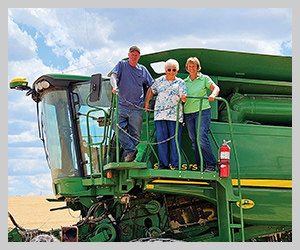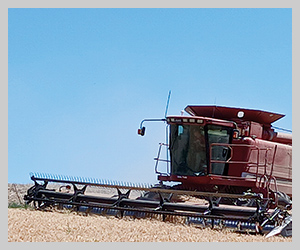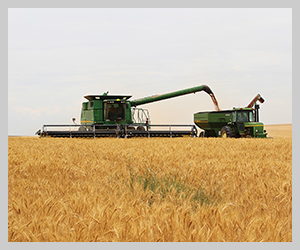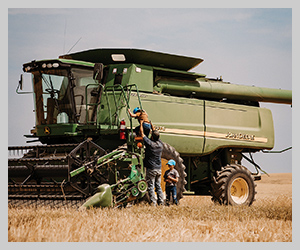Closing the deal Crop insurance date for canola moved to align more with winter wheat, other fall-planted crops
2025August 2025
By Trista Crossley
Editor
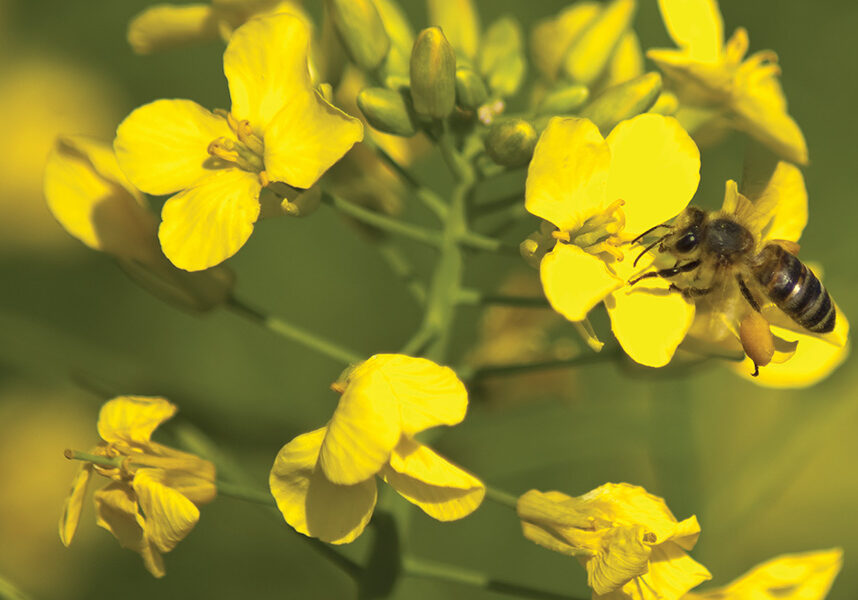

An offhand comment about a crop insurance sales closing date during the January board meeting of the Washington Association of Wheat Growers (WAWG) sent Ben Thiel on a quest to see if he could streamline a crop insurance deadline to help growers for the 2026 crop year. Thanks to a lucky turn of events, he did.
In July, the U.S. Department of Agriculture’s (USDA) Risk Management Agency (RMA) announced the sales closing date for canola and rapeseed will move from Aug. 31 to Sept. 30 in Idaho, Oregon, and Washington to better align with the sales closing date for fall-planted crops, including wheat. The change affects the 2026 and succeeding crop years.
“This change will align the canola sales period with other fall-planted crops in the area, giving canola producers more time to make insurance decisions. This also reduces the administrative burden on agents,” said Thiel, director of the RMA regional office in Spokane. “It was rather fortuitous in that we were able to achieve the change. That comment happened in January, and changes had to be done in several months and be published no later than June 30. It was a short turn around. It wasn’t planned, but everything lined up in a way to make it happen.”
Because the sales closing date for fall type canola was initially a month earlier than wheat, it was easier to miss for growers and landlords. In addition, dealing with two separate dates required extra effort for growers, landlords, and crop insurance agents. While getting these sorts of crop insurance changes aren’t necessarily difficult, the process takes time. Thiel wanted to get the change implemented quickly, ideally before the Aug. 31 deadline hit.
Within six weeks after the WAWG board meeting, Thiel took the proposal to meetings of crop insurance companies and the PNW Canola Association; all groups were very supportive of the idea with the canola association actually putting it on their priority list.
“Then it became a process where you run things ‘through the traps’ to see if they are feasible. Is management on board? Informing the various parties within RMA. It takes effort, lobbying, negotiation with various layers of RMA,” Thiel said. “Ultimately, those efforts and emphasizing that this is supported by WAWG, the canola associations, the insurance companies … all that helped. At every step, it just made sense to do it. All those things pushed it over the finish line.”
Besides moving the fall canola sales closing date, which is the last day to cancel, get a new policy, or modify an existing policy, RMA also shifted the fall canola premium billing date and the production reporting date to match wheat’s dates.
Thiel said this is a good example of crop insurance changes that start at the grassroots level but overlap between crops and grower interests.
“There was commonality and interest for this happening,” he explained. “It didn’t start with the canola association, but they embraced it and wanted to champion it.”




